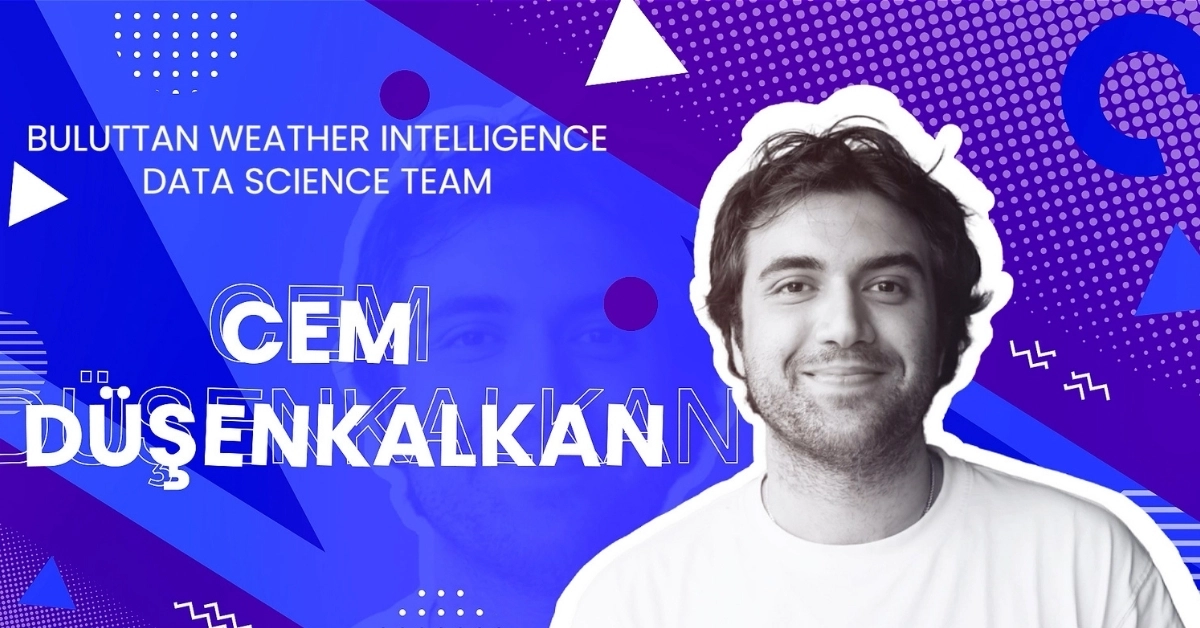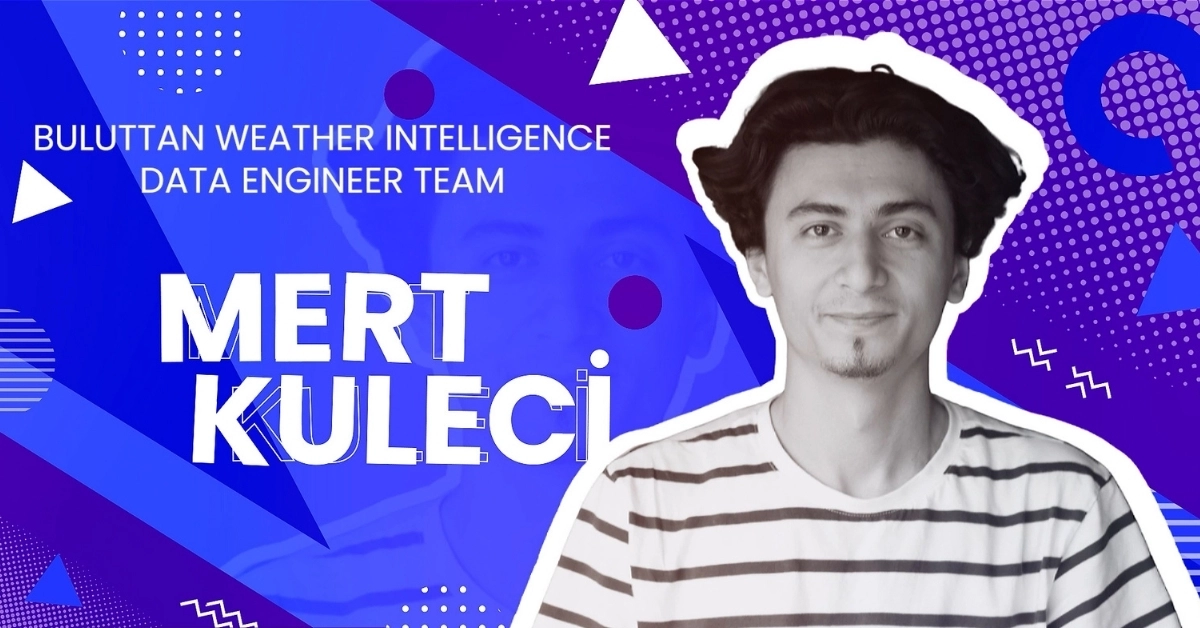Gökmen:
Hello, today we’re at Buluttan Smalltalks with Cem. Welcome, Cem.
Cem:
Thanks, hello.
Gökmen:
How are you doing?
Cem:
I’m good, how are you Gökmen?
Gökmen:
I’m good too, all fine. Let’s start with you. Who is Cem? I know it’s not easy to define yourself, but if you had to, how would you describe Cem?
Cem:
I’m from Izmir, born in 2002. Honestly, I don’t know how to define myself, but I like talking to people, communicating, sharing things. Explaining something is one of my favorite things. That’s why I’m happy to be here.
Gökmen:
What’s the last thing you explained to someone?
Cem:
Recently I told Burcu about what we’re doing at Unlicensed.
Gökmen:
Great. So what exactly are you doing right now?
Cem:
At Unlicensed, we make energy production forecasts for unlicensed electricity producers in Turkey – rooftops, fields, industrial zones, basically companies that are not under the licensed category. So, energy production forecasting.
Gökmen:
So that’s mainly your focus.
Cem:
Exactly. I’m part of the Data Science team.
Gökmen:
How long has it been since you started? Two months? Two and a half?
Cem:
Around 2–2.5 months.
Gökmen:
Alright. So how do you find it so far? The challenges, the development side, the opportunities to grow, your contribution?
Cem:
I actually found it more structured than I expected. Working under someone like Güven is really valuable. I think it’s one of the best experiences a computer engineer can have. Normally, when people think of a startup, they imagine chaos, everyone rushing around. But here, on the Data Science side, there’s real procedure and structure. Getting used to that has been part of my process.
Gökmen:
So everything is as it should be in Data Science. Cem, you studied Computer Engineering. Can we say this is your first real workplace experience?
Cem:
Yes, I’d say so. This is the first place I consistently come to, where I put in a lot of effort, and where I don’t have any other job outside school.
Gökmen:
And how has your experience been so far? I see that you have good communication with the team, you’ve fit in, and you’re doing your best to contribute to the product. How do you see it?
Cem:
So far it’s been uplifting both socially and technically. A workplace should elevate a person, and technically I’ve learned so much. Before coming here, I knew less about real-world applications. Now we run a process from start to finish. People are great, everyone knows their job, and when you ask something you know you’ll get a clear answer. Responsibilities are clear too, and that really made me happy.
Gökmen:
That’s wonderful to hear. Outside of Data Science, I know you play football. What else are you into?
Cem:
I play football, sometimes with the Buluttan team. We do small field games with friends. But mainly I play basketball – I love basketball. I also enjoy board games. And like many data scientists, I enjoy reading stats, math, and quirky problems to analyze. I also love Izmir – boyoz and bomba are must-haves. I go back whenever I can.
Gökmen:
Based on your 2–2.5 months of experience, what kind of people do you think teams like Data Science – or even other teams – need?
Cem:
I think the most important thing is being willing to share. Because an issue in one project can also appear in another. So talking to teammates, explaining what you’ve experienced, documenting it, and sharing it with the Data Science team is really important. People who are open and willing to teach would be great for the team.
Gökmen:
That’s a great description. Probably one of the most important qualities in a teammate. So, what are your thoughts on weather intelligence? Before you may have used weather data a bit, but here we deal with much more complex things – temporal and spatial resolutions, parametric modeling, solving differential equations, AI models improving meteorological forecasts, even transforming them into new meta models like production forecasting. It’s a vast and growing field. How do you see it?
Cem:
Honestly, I didn’t realize how big it could be when I first joined. At first, I only thought of it as “forecasting.” But when you consider location-based and customized forecasts, you end up with so many new dimensions. That increases the complexity a lot. Before, in my own projects, I just used forecasts. But learning how it’s actually done is another level.
Gökmen:
Exactly. I think it’s fascinating for many people, not just meteorology engineers. We have data scientists, data engineers, backend developers, business developers, etc. So even if someone isn’t a meteorology engineer, there are many roles for people interested in things like chaos theory, data-heavy work, or modeling in climate and meteorology. Who would you encourage to apply here?
Cem:
Anyone who loves experimenting and truly enjoys Data Science. Weather has so many aspects, so much to explore. There are dozens of things Buluttan could develop. Why shouldn’t someone come and explore them? So I’d encourage anyone who’s curious to give it a try.
Gökmen:
Perfect. Thanks for the nice chat.
Cem:
Thank you. And to everyone: May your weather be nice!






